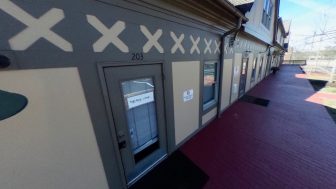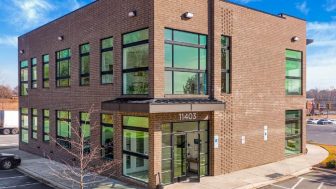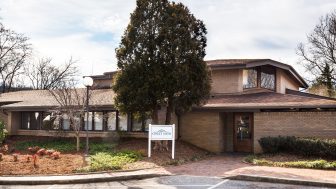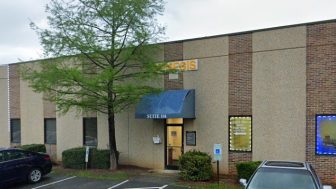Raleigh VA Clinic
3305 Sungate Boulevard
Raleigh, NC 27610
Raleigh, North Carolina
919-212-0129
Get Help Now - 919-205-2995
 Who Answers?
Who Answers?
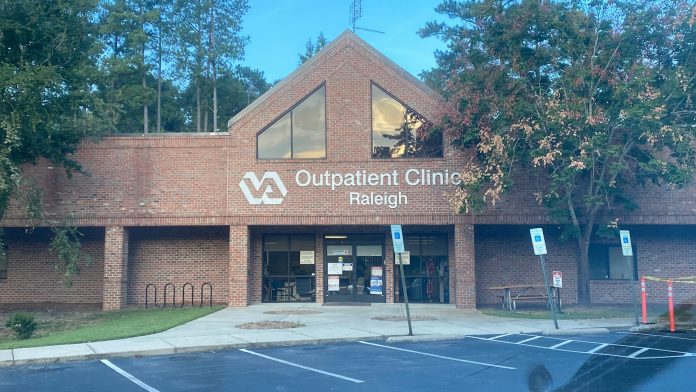
Amenities

Metropolitan Area
Addiction treatment in the metro area benefits clients by offering seamless connections from the city, around ...the state, and those seeking out-of-state treatment. Another benefit of attending a metro area drug rehab is that you’re close to major airports and ground transportation services.Read More
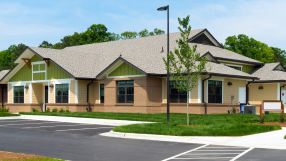
Private Rehab
Private drug rehab provides a comfortable, secure environment that allows you to focus on doing the work to ge...t your life back on track. Benefits include a higher staff-to-client ratio, increased one-on-one time with therapists and healthcare providers, private rooms for clients, and customized forms of therapy.Read More

Residential Setting
Residential drug rehab provides the comforts of home with the therapeutic support needed to successfully recov...er. Benefits of an inpatient program include increased safety, a higher success rate, and the time and distance given to focus on recovery. Residential drug rehabs are often the preferred method of treatment, as they can be tailored to meet specific needs, offer focused therapeutic care, and provide the necessary tools to sustain recovery.Read More
Addiction Treatment Programs
Adult Program
Cognitive Behavioral Therapy (CBT)
Men's Rehab
Rehab For Veterans
Rational Behavior Therapy (RBT)
Senior Drug & Alcohol Rehab
Women's Rehab
Adult Program
An adult program in North Carolina typically combines individual and group counseling, medical treatment, and various other therapies to treat substance use disorders. Treatment can take place in an inpatient or outpatient setting.Cognitive Behavioral Therapy (CBT)
Many therapists use cognitive behavioral therapy in North Carolina to treat substance use disorders. This goal-oriented method addresses maladaptive thinking and related beliefs that affect behaviors and can lead to addiction.Men's Rehab
Men’s rehab in North Carolina offers customized treatment for men. These programs provide personalized treatment that is designed with the unique needs of men in mind.Rehab For Veterans
Veteran’s rehab in North Carolina offers trauma-informed therapy from experienced mental health professionals. These programs offer a supportive and understanding environment to help Veterans recover from substance use disorders and manage co-occurring conditions.Rational Behavior Therapy (RBT)
The goal of rational emotive behavioral therapy in North Carolina is to help you develop healthy emotional, behavioral, and cognitive patterns so you can increase your quality of life and achieve sobriety goals. This is accomplished by increasing healthy, rational beliefs.Senior Drug & Alcohol Rehab
Elderly rehab in North Carolina provides specialized treatment for addiction among adults ages 55 and older or 65 and older. This treatment typically addresses dual diagnosis, substance use disorder, and age-specific concerns of seniors.Women's Rehab
Women’s rehab in North Carolina allows women to receive gender-specific treatment tailored to their needs. Programs are available for alcohol, heroin, prescription drugs, benzos, and any other addictive substances, as well as co-occurring disorders.Levels of Care
1
Inpatient Rehab
When you choose inpatient drug rehab in North Carolina, you’ll live at a rehab facility for 28 to 90 days, d...epending on the program. Typical methods of treatment include group and individual therapy and family counseling.Read More
2
Outpatient Rehab
Outpatient rehab in North Carolina is often the next step for those who complete an inpatient program. This le...ss restrictive treatment involves several hours of therapy per week, and accountability through 12-step meetings such as AA. You’ll continue this treatment as long as needed, which could be weeks, months, or years.Read More
3
Aftercare & Alumni Program
Aftercare rehab in North Carolina is a crucial part of relapse prevention. It gives you access to resources th...at will help you manage stress and overcome life hurdles. Typical services include career coaching, financial guidance, and ongoing counseling and emotional support. These may continue for a few months or more than a year after initial rehab.Read More
4
Dual Diagnosis & Mental Health
Some of the most common co-occurring mental health disorders include anxiety, depression, and eating disorders.... When these are present alongside substance use disorder, dual diagnosis treatment in North Carolina is necessary to address both conditions.Read More
5
Drug & Alcohol Intervention
Recovery journeys often begin with intervention services in North Carolina. This treatment tool provides key s...upport in planning and facilitating an effective intervention. Intervention specialists can also provide resources to develop treatment plans and guide families through the admission process.Read More
Accreditations

SAMHSA

Joint Commission
Insurance
 Financial Aid
Financial Aid
If you’re struggling to cover the cost of alcohol and drug rehab in North Carolina, financial aid may be a g...ood solution. Financial assistance options include grants, scholarships, non-profit programs, personal funding, and health insurance programs to help you manage the expense of substance abuse treatment.Read More
 Medicaid Accepted
Medicaid Accepted
If need help with the cost of alcohol and drug rehab in North Carolina, you may be eligible for Medicaid. This... coverage can assist with the cost of treatment, including detox, inpatient rehab, and more, but the amount covered may vary.Read More
 Medicare Accepted
Medicare Accepted
If you're enrolled in Medicare, or find out you’re eligible for Medicare, you may be able to use your Medica...re benefits to help pay for alcohol and drug rehab in North Carolina. The amount of coverage will depend on many things, including whether you are seeking inpatient or outpatient treatment for substance abuse.Read More
 TRICARE
TRICARE
Administered by the Department of Defense, TRICARE offers comprehensive military health insurance plans for ac...tive and retired military members and their families. Similar to PPO programs offered by private insurance companies, TRICARE covers multiple levels of care for addiction treatment, including detox, inpatient rehab, and outpatient services.Read More
 Private Insurance
Private Insurance
Your insurer may help cover the cost of alcohol and drug rehab in North Carolina. The amount covered will depe...nd on your policy and whether the treatment center is in-network or out-of-network. You may be left with some costs like a co-payment, or co-insurance. Check with your insurer for more information.Read More
 Self-Pay Options
Self-Pay Options
In North Carolina, you have the option to take charge of your treatment costs and pay out-of-pocket, known as ...self-pay or private pay. Paying for alcohol and drug rehab in North Carolina, you to access all levels of care — including detox in North Carolina, and inpatient rehab in North Carolina —without being subject to the limitations of your insurance provider.Read More
Contact Raleigh VA Clinic

